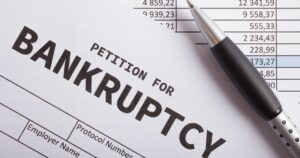How do you qualify for Chapter 7?
Not everyone in debt qualifies for Chapter 7. Instead, there are strict guidelines in place that apply, regardless of where you live, which determine if you can use Chapter 7 or if you must look for an alternative.
Chapter 7 bankruptcy is a total relief bankruptcy. It means that, once your case completes, all debts discharge and creditors in bankruptcy are barred from coming after you to collect on any balances.
Due to how this form of bankruptcy easily wipes debt from a consumer’s plate, the federal government has strict guidelines ensuring that no one can abuse the power of this debt-elimination tool. Therefore, you must go through the eligibility process and see if you qualify before the court is willing to hear your case.
Even if you do not qualify for Chapter 7, you are not without options. In fact, working with a bankruptcy attorney, you can find an alternative to Chapter 7 that still helps you get back in control of your financial situation.
Qualification Requirements for Chapter 7 Bankruptcy
Understanding what it takes to qualify ahead of time is critical, especially with Chapter 7. The following are the basic guidelines to help determine if you could file for Chapter 7, but you should still consult with an attorney. Certain factors in your case might qualify you, even if you seem like you’re excluded.
Prior Filing
Filing for bankruptcy in the past does not automatically exclude you, but it can depend on how long ago your past filing completed. The law requires you to wait eight years before you can file for Chapter 7 again. Even if your financial situation would qualify you, you must wait that eight-year period.
If you have filed but you did not complete the case and no discharge was issued by the court, then you can re-file without the eight year waiting period applying.
Also, if you filed for Chapter 13 bankruptcy, you must wait six years from the date of completion to file for Chapter 7 bankruptcy.
Note that it is not the date you filed initially, but the date your case closed and you received a discharge for all past Chapter 7 and 13 bankruptcy cases.
Bankruptcy Credit Counseling
Before you can file a petition for bankruptcy, you must also take a pre-bankruptcy filing, credit counseling class. You must attend these classes by an approved agency for this counseling session, and you must do so within six months of filing your petition. If you take the course but a year goes by and you still have not filed for bankruptcy, you must retake that course before you can file.
After you complete the course, you get a certificate with a date of completion that you must use when you file for bankruptcy.
Passing the Chapter 7 Bankruptcy Means Test
The Bankruptcy Abuse and Consumer Protection Act of 2005 requires that all new bankruptcy applicants pass the “means test.” The means test basically ensures that you have little to no disposable income, and it proves to the court that there is no way for you to pay down debts responsibly.
Part of the test looks at your household income, including your spouse’s if you are married. It will compare your average monthly earnings to the average for your state of a similar household. If your income falls below the median with a similar household size, then you may pass the means test.
In most cases, if you have legitimate financial difficulties, you will be making considerably less than the median and have no disposable income to pay your debts.
What If My Income Is over the Median?
Just because your income is over the median doesn’t mean you are disqualified just yet. Instead, the means test just shows where your income sits compared to similar households in the state. However, if you can prove that you have little to no disposable income, no assets to liquidate, and no possible way to pay your debts, you might still qualify.
In this case, you would then do the complete means form, rather than just take the means income test, and go on to the next step. The complete form goes over your debts, assets, investments, and anything that could possibly be used to pay off some or all of the debts owed.
Hiring an Attorney for Chapter 7 Is Key
Chapter 7 is a complicated process, and if you miss one deadline or step, even during initial qualification, your case might get dismissed. This will create delays and can increase the chances of creditors being able to seize your property. Hiring an attorney from the start is best. An attorney will tell you right away if you can file a Chapter 7, and if you cannot, they will start looking for alternatives. Most importantly, they understand what is at stake. You have a home, vehicles, a family, and creditors harassing you everyday.
An attorney will find the best solution that ensures you get out from under your debts and that you get a fresh start. More importantly, they can help lock in an automatic stay that protects you from further creditor harassment.
To explore your options and to see if you qualify for Chapter 7, contact a bankruptcy attorney today.

